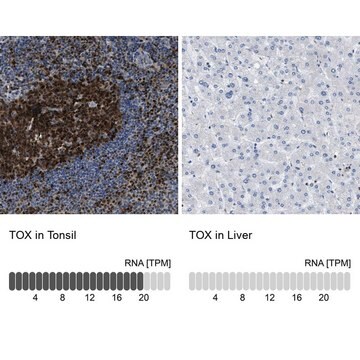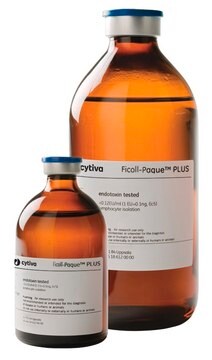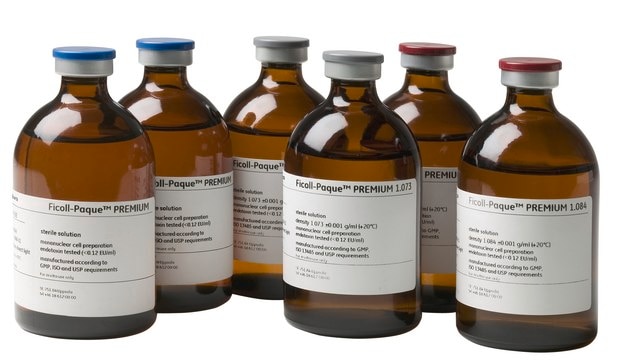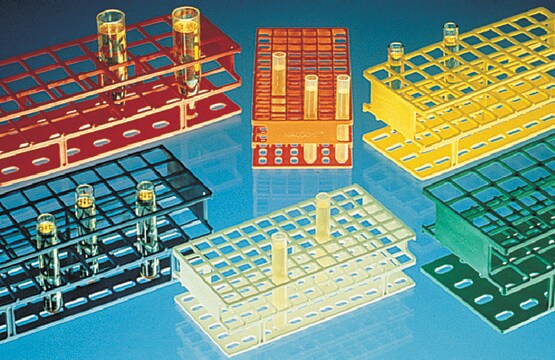MABF977
Anti-ICOS/CD278 Antibody, clone C398.4A
clone C398.4A, from hamster(Armenian)
Sinónimos:
Inducible T-cell costimulator, Activation-inducible lymphocyte immunomediatory molecule, CCLP, CD278, CD28 and CTLA-4-like protein, CD28-related protein 1, CRP-1, H4
About This Item
Productos recomendados
origen biológico
hamster (Armenian)
Nivel de calidad
forma del anticuerpo
purified immunoglobulin
tipo de anticuerpo
primary antibodies
clon
C398.4A, monoclonal
reactividad de especies
mouse, human
reactividad de especies (predicha por homología)
rhesus macaque (based on 100% sequence homology)
técnicas
flow cytometry: suitable
immunocytochemistry: suitable
immunohistochemistry: suitable
immunoprecipitation (IP): suitable
isotipo
IgG
Nº de acceso NCBI
Nº de acceso UniProt
Condiciones de envío
ambient
modificación del objetivo postraduccional
unmodified
Información sobre el gen
human ... ICOS(29851)
mouse ... Icos(54167)
Categorías relacionadas
Descripción general
Especificidad
Inmunógeno
Aplicación
Flow Cytometry Analysis: A representative lot detected the surface expression of exogenously transfected human ICOS on the surface of murine L cell fibroblasts. Clone C398.4A and another ICOS mAb (clone F44) competed against each other for the the suface staining of PHA-activated human peripheral blood T-cells (Buonfiglio, D., et al. (2000). Eur. J. Immunol. 30(12):3463-3467).
Flow Cytometry Analysis: A representative lot detected a greatly enhanced ICOS/CD278- (hpH4; human putative mouse H4 homolog) positive cell population among isolated human PBMCs following PHA stimulation (Buonfiglio, D., et al. (1999). Eur. J. Immunol. 29(9):2863-2874).
Flow Cytometry Analysis: A representative lot immunostained D10.G4.1 murine TH2 cells as well as activated, but not resting, T and B cells freshly isolated from mouse spleen (Redoglia, V., et al. (1996). Eur. J. Immunol. 26(11):2781-2789).
Immunocytochemistry Analysis: A representative lot immunostained H4 (ICOS/CD278) immunoreactivity co-capped with that of TCR mAb 3D3 on the surface of D10.G4.1 murine TH2 cells by immunofluorescence microscopy (Redoglia, V., et al. (1996). Eur. J. Immunol. 26(11):2781-2789).
Immunohistochemistry Analysis: A representative lot immunostained the membrane of hpH4- (ICOS/CD278) positive lymphocytes in acetone-fixed frozen human reactive lymph node sections, while most neoplastic cells showed cytoplasmic hpH4 staining in frozen PTCL-U (peripheral T cell lymphoma, unspecified) and angioimmunoblastic T cell lymphoma sections (Buonfiglio, D., et al. (1999). Eur. J. Immunol. 29(9):2863-2874).
Immunoprecipitation Analysis: A representative lot immunoprecipitated and depleted ICOS from human T-cell lymphoma HuT 78 cell lysates (Buonfiglio, D., et al. (2000). Eur. J. Immunol. 30(12):3463-3467).
Immunoprecipitation Analysis: A representative lot immunoprecipitated H4 (ICOS/CD278) from PHA-activiated human peripheral blood (PB) T cells in a ~55-70 kDa glycosylated dimeric form (Buonfiglio, D., et al. (1999). Eur. J. Immunol. 29(9):2863-2874).
Immunoprecipitation Analysis: A representative lot immunoprecipitated H4 (ICOS/CD278) from D10.G4.1 murine TH2 cells in a glycosylated dimeric form (Redoglia, V., et al. (1996). Eur. J. Immunol. 26(11):2781-2789).
Inflammation & Immunology
Calidad
Flow Cytometry Analysis: 0.1 µg of this antibody detected ICOS/CD278 immunoreactivity on the surface of PHA-activated (5 µg/mL at 37°C for 72 hours) human PBMCs.
Descripción de destino
Forma física
Almacenamiento y estabilidad
Handling Recommendations: Upon receipt and prior to removing the cap, centrifuge the vial and gently mix the solution. Aliquot into microcentrifuge tubes and store at -20°C. Avoid repeated freeze/thaw cycles, which may damage IgG and affect product performance.
Otras notas
Cláusula de descargo de responsabilidad
¿No encuentra el producto adecuado?
Pruebe nuestro Herramienta de selección de productos.
Código de clase de almacenamiento
12 - Non Combustible Liquids
Clase de riesgo para el agua (WGK)
WGK 2
Punto de inflamabilidad (°F)
Not applicable
Punto de inflamabilidad (°C)
Not applicable
Certificados de análisis (COA)
Busque Certificados de análisis (COA) introduciendo el número de lote del producto. Los números de lote se encuentran en la etiqueta del producto después de las palabras «Lot» o «Batch»
¿Ya tiene este producto?
Encuentre la documentación para los productos que ha comprado recientemente en la Biblioteca de documentos.
Nuestro equipo de científicos tiene experiencia en todas las áreas de investigación: Ciencias de la vida, Ciencia de los materiales, Síntesis química, Cromatografía, Analítica y muchas otras.
Póngase en contacto con el Servicio técnico





